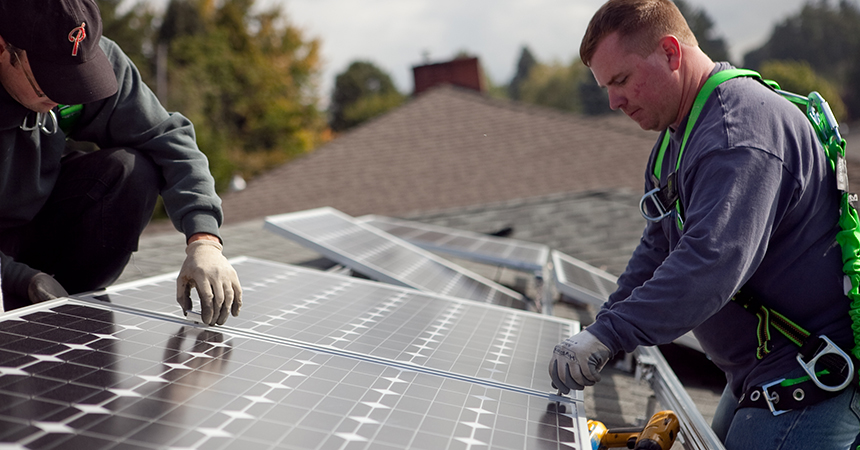
An expanded federal tax credit is making it more affordable for homeowners to go solar.
The change arrived as part of the Inflation Reduction Act, approved by Congress in August 2022, which is the largest investment in climate and clean energy the U.S. has ever made. In addition to tax credits for energy-efficiency upgrades, the act gives a considerable boost to homeowners who want to install solar, increasing the federal tax credit to 30% for solar panels and battery storage.
The new higher rate is retroactive to the start of last year. Solar or battery storage projects completed between Jan. 1, 2022, and Dec. 31, 2032, qualify for the 30% tax credit, with the rate ramping down to 26% for installations in 2033 and to 22% in 2034.
Bundling the tax credit with Energy Trust of Oregon solar cash incentives and State of Oregon solar + storage rebates can significantly reduce the total cost of a residential solar project.
Qualifying homeowners who meet low- to moderate-income guidelines can save even more with Energy Trust’s Solar Within Reach increased incentives and a higher solar + storage rebate rate from the state. These higher incentives and the tax credit can reduce the cost of installing solar by up to 65%.
“This bigger tax credit makes solar more doable for more Oregonians,” said Jeni Hall, Energy Trust’s advanced solar program manager.
Adding to the favorable financial picture is the fact that solar panel costs have dropped by more than half in the last decade. Plus, a solar installation means lower monthly energy bills for decades to come.
Tax credit applies to backup power, too
Home battery storage systems of now qualify for the federal tax credit and can be installed with a new solar project or paired with existing solar panels. A solar plus storage system can make your home energy resilient by by providing backup power during power outages.
“Battery storage systems are typically installed in a garage and can store any extra solar power your home doesn’t use,” said Hall. “During an outage, the solar and battery storage working together provide clean, quiet backup power to keep key things running, like your lights, refrigerator, cell phone chargers or important home medical equipment.”
How to get started on solar
If you are curious about solar or solar plus storage for your home, the first step is to request a free analysis and bid from an Energy Trust solar trade ally. Our trusted network of trade ally contractors can answer questions and explain incentives, rebates and the new higher tax credit.
